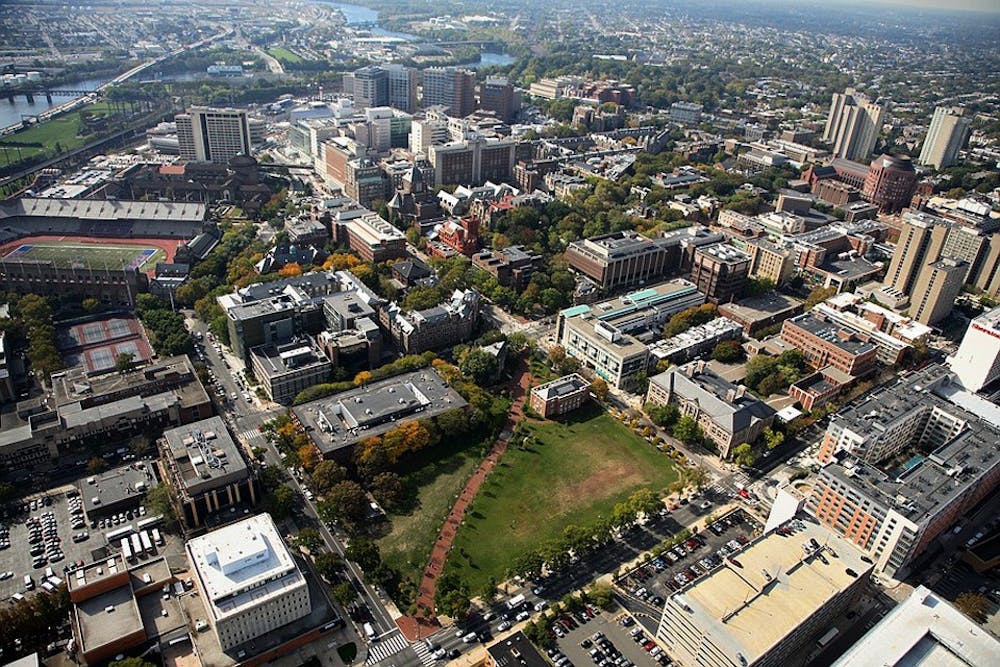
Penn President Amy Gutmann is confident that the University will receive a gift to name the new college house on Hill Field within next year. She is currently in conversation with possible donors who may be interested in donating $50 million towards the college house. This gift would contribute to the construction process for the $100 million project.
A new college house is coming to Penn.
The University is currently in the process of working to obtain a naming gift for a future residential hall on Hill Field, President Amy Gutmann said.
Though Penn reached its overall $3.5-billion goal for the “Making History” fundraising campaign on Sept. 23, the college house naming gift remains “one of the very highest priorities” for the University to acquire before the campaign comes to a close in December 2012, Gutmann said.
Gutmann added that she is currently in “active discussions with possible donors” and is “optimistic” that Penn will obtain a gift within the next year.
Vice President for Development and Alumni Relations John Zeller agreed, adding that the naming gift is currently valued at about $50 million.
According to Penn Connects — the University’s ongoing land-use and urban-design campus plan — the project will cost an estimated $100 million.
Though the naming gift will be the most significant contributor to the construction process, Zeller said his office is working on covering remaining costs through additional fundraising efforts.
The process for obtaining a major naming gift like this, Zeller explained, centers around finding a match between an individual donor’s interest and a key University need.
“Part of this campaign process is actually having conversations with people. You don’t throw a list of potential projects out there and have people raise their hands and say, ‘That’s what I’m interested in,’” he said. “It’s really about discovering what individuals are passionate about, what they care about and starting the conversation based on that.”
He added that the process is one that takes time, often requiring several in-person meetings for logistical planning.
1970 Wharton graduate James Dunning — whose multimillion-dollar gift went toward the naming of Penn Park’s new Dunning-Cohen Champions’ Field and Seasonal Air Structure — said the notion of a name behind a gift “often comes very secondary to someone’s philanthropic ideals.”
For Dunning, “the nature of the gift drives the philanthropy, not the name that comes attached with it.”
Dunning, who also provided the naming gift for Penn Athletics’ Dunning Coaches’ Center and has given several major anonymous donations to other schools over the years, added that “this particular project is vital for Penn. Housing is a very important part of the sociology of the University, and keeping students close to campus is essential.”
Though there is still no start date for the project’s construction, its eventual completion will mark “the first college house designed and built specifically as a college house since Penn’s college house system was created in the late ’90s,” Facilities and Real Estate Services spokeswoman Jennifer Rizzi wrote in an email.
Capital projects like student housing are among the main priorities identified in Making History’s core campaign goals.
Other recent naming gifts for capital projects include $20 million for the Krishna P. Singh Center for Nanotechnology, $10 million for the George A. Weiss Pavilion at Franklin Field and $225 million for the Ruth and Raymond Perelman Center for Advanced Medicine.
For Gutmann, the future college house marks a major development for Penn.
“The goal here is to create another incredibly vibrant quad on Hill Field with wonderful green space, as well as a modern dining commons,” she said. “We’re confident that we’ll be able to move forward on this soon.”
The Daily Pennsylvanian is an independent, student-run newspaper. Please consider making a donation to support the coverage that shapes the University. Your generosity ensures a future of strong journalism at Penn.
DonatePlease note All comments are eligible for publication in The Daily Pennsylvanian.





